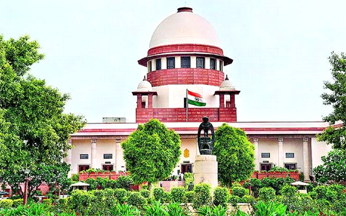NEW DELHI (TIP): A person accused of money laundering can’t be arrested by the Enforcement Directorate after the special court has taken cognizance of the probe agency’s complaint (chargesheet) and has issued summons to him under the Prevention of Money Laundering Act (PMLA), 2002, the Supreme Court ruled on Thursday, May 16, a TNS report said. A Bench led by Justice AS Oka, however, said: “If the ED wants custody of the accused who appears after service of summons for conducting further investigation in the same offence, it will have to seek custody of the accused by applying to the special court.”
Must take court nod for custody
Bench said if ED wanted custody, it could move a plea before special court, which could grant custody if satisfied custodial interrogation was required
If ED wanted to conduct further probe for same offence, it could arrest person not shown as accused in complaint, provided requirements of Section 19 were met
In case, an accused appeared before special court in response to summons after filing of ED complaint, he needn’t satisfy stringent twin test for bail
Twin conditions for bail require court to first hear out public prosecutor; if satisfied accused isn’t guilty & won’t commit offence, court can grant bail.
Amid criticism of its order granting 21-day interim bail to Delhi CM Arvind Kejriwal in a money laundering case linked to the excise scam, the Supreme Court on Thursday, May 16, said it didn’t make any exception for him. “We welcome critical analysis of the verdict… We specifically said we are not making an exception for anybody,” it said, refusing to go into charges and counter-charges made with regard to bail order.
The Bench, which also included Justice Ujjal Bhuyan, said: “After hearing the accused, the special court must pass an order on the application by recording brief reasons. While hearing such an application, the court may permit custody only if it is satisfied custodial interrogation at that stage is required, even though the accused was never arrested under Section 19.”
However, the top court said: “When the ED wants to conduct further investigation concerning the same offence, it may arrest a person not shown as an accused in the complaint already filed under Section 44(1)(b), provided the requirements of Section 19 are fulfilled.” It said: “If the accused was not arrested by the ED till the filing of complaint, while taking cognizance of a complaint under Section 44(1)(b), as a normal rule, the court should issue a summons to the accused and not a warrant. Even in a case where the accused is on bail, a summons must be issued.” The verdict came on a petition filed by Tarsem Lal challenging a Punjab and Haryana High Court order in a PMLA case against him. The HC had on December 19, 2023, dismissed his anticipatory bail plea, saying he didn’t satisfy one of the conditions under Section 45 of the PMLA.
Section 45 requires the prosecutor to be given an opportunity to oppose the bail plea and says the court can grant bail to an accused only if it’s satisfied there are reasonable grounds for believing the accused is not guilty of such offence and that he is not likely to commit any offence while on bail.
While setting aside the HC verdict, the top court cancelled the non-bailable warrants issued against Lal and asked him to furnish bonds before the special court and take part in the trial proceedings, unless specifically exempted.
The Bench made it clear in cases where the accused has appeared before the special court in response to summons issued to him after filing of the ED complaint, he need not satisfy the stringent twin test for grant of bail under Section 45 that made it difficult for accused persons to get bail in money laundering cases.
Noting that a bail bond furnished in terms of Section 88 of the Criminal Procedure Code (CrPC) was only an undertaking, the top court said an order accepting the bond didn’t amount to grant of bail and, therefore, the twin conditions of Section 45 of the PMLA were not applicable in such cases.
“If the accused appears before the special court by summons, it can’t be treated that he is in custody… He is not required to apply for bail, and thus twin conditions of Section 45 of the PMLA are not applicable,” it said.
